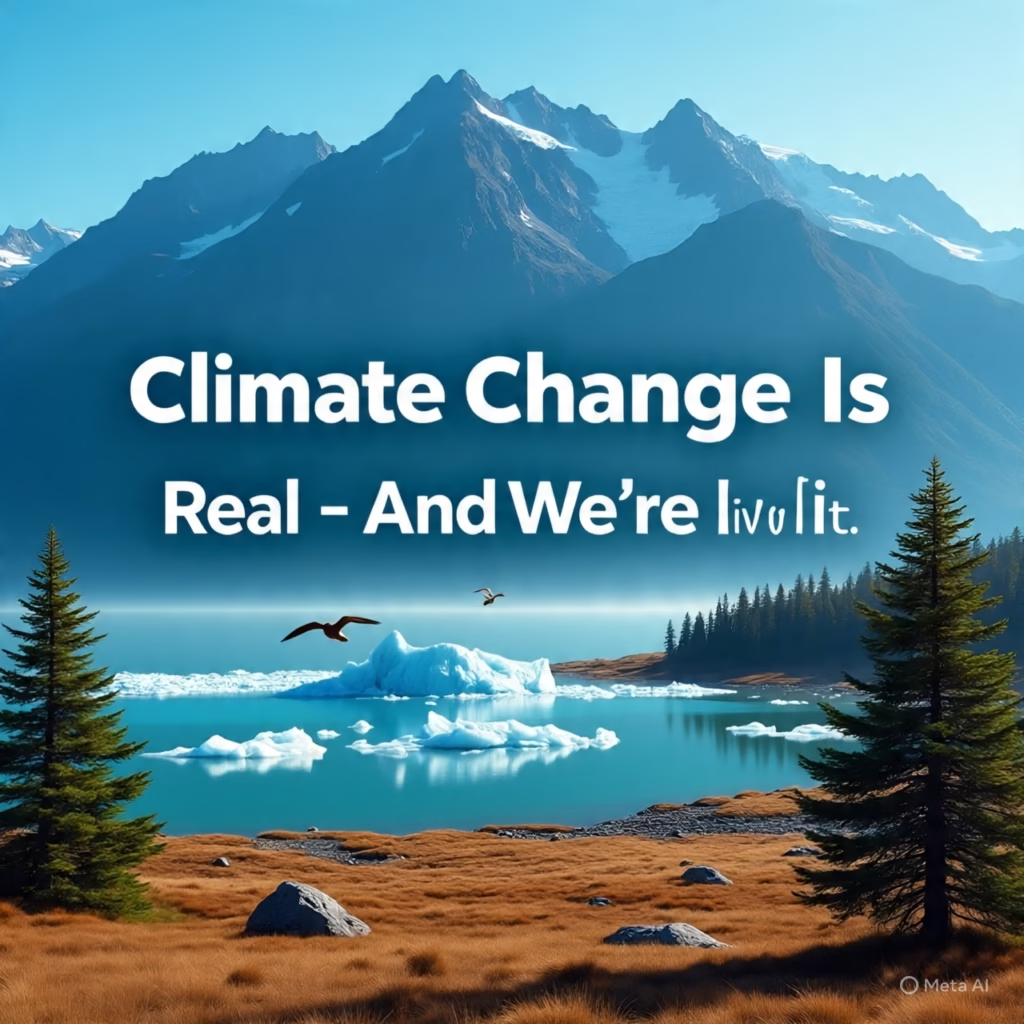Introduction.
Climate Change Is Real — And We’re Living It
I’ll be honest right now: I’m not a scientist. I’m not an authority.I don’t have a fancy degree in environmental studies. I’m just a regular person who’s been watching the world change — and not for the better.
I had took them for given, but in the past few years, I’ve begun to notice them. Winters are no longer truly winters. Summers are harsh and sometimes even scary. The weather doesn’t feel like weather — it feels like a warning.
And that’s what climate change is. Not some distant “maybe someday” threat. It’s here. It’s now. It’s also changing our lives in ways that we can’t ignore.
Every year, the heat gets worse.
I remember when 35°C felt hot. Now we’re seeing days that cross 45°C, even in places that were never supposed to get that warm. And it’s not just a number — it’s dangerous.
People are fainting on their way to work. Kids can’t go outside to play. Elderly folks are stuck indoors because stepping outside could literally be fatal. And let’s not forget how this pressure hits families that can’t afford air conditioning or even reliable electricity.
Climate change is no longer about charts and graphs. It’s about who gets to stay safe — and who doesn’t.
Floods, Fires, and Storms That Don’t Feel “Normal” Anymore
When did “once-in-a-century” disasters start happening every year?
Entire towns are going underwater from floods. Forests are burning uncontrollably for weeks at a time. Hurricanes are growing more violent. I’ve seen neighborhoods wiped out in hours by rainfall that didn’t stop.
And it’s not just on the news. It’s happening in our own cities and villages. Streets that never flooded now do. Homes that were safe for generations suddenly aren’t. We can’t call this “bad weather” anymore. This is climate breakdown.
The Food We Eat Is Changing Too
I spoke to a farmer recently. He said he couldn’t rely on the seasons anymore. The rain comes too late or too early. The sun is too strong. Crops that used to grow well for decades are failing now. And this isn’t some isolated problem in the countryside — it’s everyone’s problem.
Food prices go up. Quality goes down. Availability shrinks. If farmers can’t grow, we can’t eat. It’s that simple.
And then there’s water. More droughts, more pressure on already limited water sources. Families ration it. Some don’t even have access to clean water anymore.
Nature’s Disappearing Right in Front of Us
I grew up hearing birds sing in the morning. Bees buzzing around flowers. Clear blue skies. That doesn’t feel like the case anymore.
There are fewer bees now. Fewer butterflies. Some animals are showing up in places they don’t belong, just trying to survive. And coral reefs — some of the most beautiful parts of our oceans — are dying because of warming water.
We’re not just losing species. We’re losing balance. And that affects all of us — whether we care about animals or not.
It’s the Poor Who Suffer Most
What breaks my heart is how unfair this crisis is. People in big cities with backup generators, bottled water, and high-end health care can find ways to cope — at least for now.
But people in remote areas? People living paycheck to paycheck? They’re the ones getting hit first, and hardest. And they didn’t even cause the problem. The big industries did. The polluters. The corporations. Yet it’s the small farmer, the low-income worker, the single mother who bears the cost.
We Still Have a Choice — But the Window Is Shrinking
This is the part where most people tune out. Because yeah, it’s scary. But here’s the truth: we still have a chance.
We still have a say in what happens next. Maybe we can’t reverse everything. But we can stop it from getting worse.
It starts with:
- Demanding cleaner energy from our leaders.
- Supporting local farmers and businesses that care.
- Using less where we can — less plastic, less waste, less energy.
- Teaching the next generation the truth about what’s going on.
It’s not about being perfect. It’s about doing better, little by little, together.
Final Words: This Planet Is Our Home
This isn’t just about ice caps melting or forests burning. It’s about our lives. Our homes. Our future.
Global warming doesn’t knock, if that’s one thing I’ve learnt. It just walks in. Sometimes slowly, sometimes like a storm. But always with consequences.
We can pretend it’s not happening — or we can face it. Talk about it. Change what we can.
Because this planet is still worth saving. And we don’t get a second one.

Climate change
Might you like to read this blog.
Leave a Reply